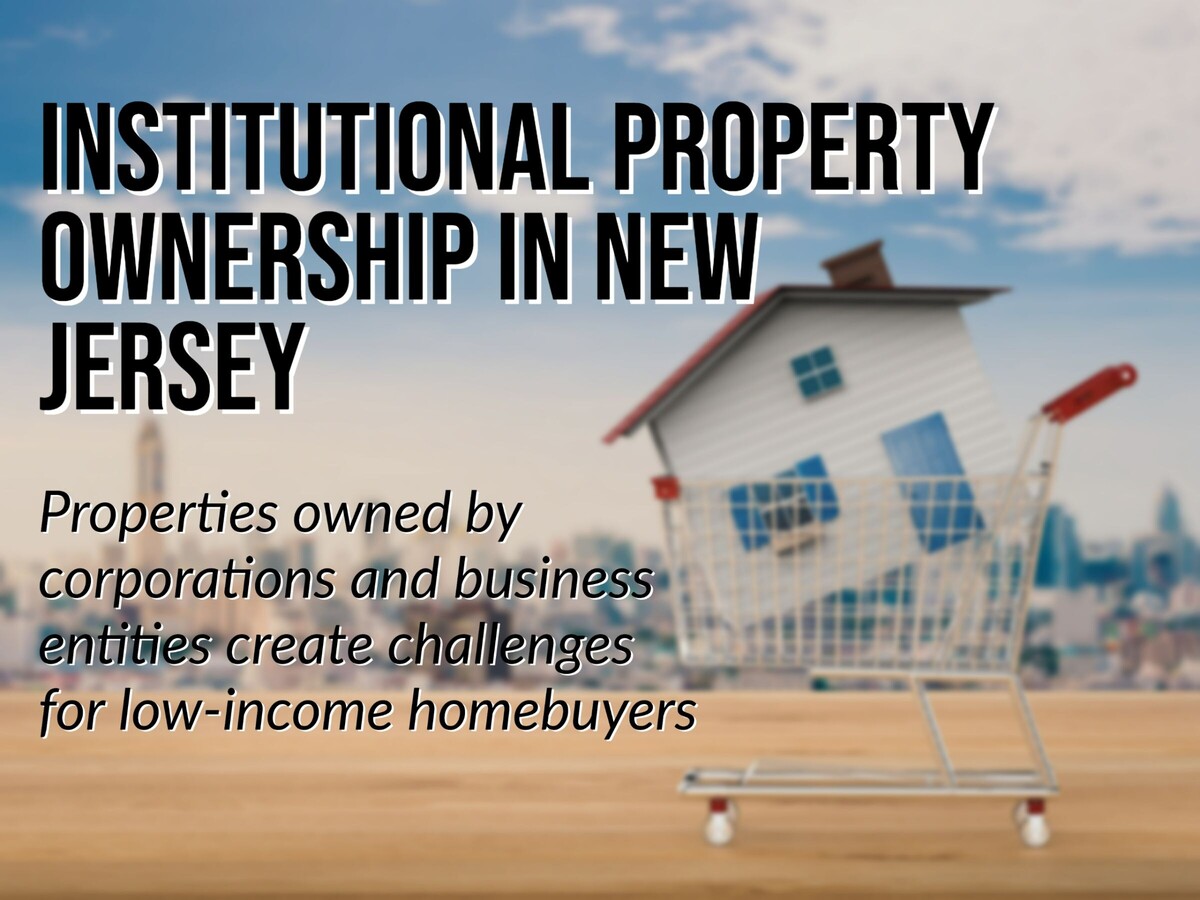Image


New Jersey residents, especially those with low incomes, are facing a tough battle to purchase a home as an increasing number of residential properties are falling into the hands of corporations, trusts, and banks. This is according to a new report titled "Buying New Jersey: The Rise in Institutional Ownership of Residential Properties," issued by the New Jersey Department of Community Affairs.
The study found that in the last decade, 96.4% of New Jersey's 544 municipalities have seen a rise in institutional ownership of one- to four-family housing stock. The report states that the areas most targeted by institutional buyers are typically lower-income, more distressed, and have a high percentage of renters.
The report defines institutional ownership as ownership by any entity that does not constitute a single household. It also found that this trend is not likely to change soon and can be attributed to a "propensity to acquire property for speculation, investment purposes, or to rent out."
Highlights on institutionally owned real estate:
The report offers a number of recommendations to address the issue, including encouraging municipalities to transfer municipally-owned, vacant, and abandoned residential properties to community non-profit organizations and residents, and increasing scoring for New Jersey Affordable Housing Trust Fund applications that involve developing owner-occupied affordable housing in communities with a high rate of institutional ownership.
“This report shows the challenges that exist for homebuyers, particularly those with lower incomes, to purchase a home in their communities when they’re competing against corporations and business entities for housing,” said Lt. Governor Sheila Oliver, who serves as DCA Commissioner. “While institutional homeownership is just one of several factors contributing to the very difficult housing market for regular homebuyers, it is an important factor. Therefore, we hope the report can be a starting point that leads all levels of government in New Jersey to find ways to make sure homeownership remains accessible to low- and moderate-income residents.”
The report can be found on the DCA website, which offers a wide range of programs and services, including local government management, affordable housing production, fire safety, community planning, and information privacy.